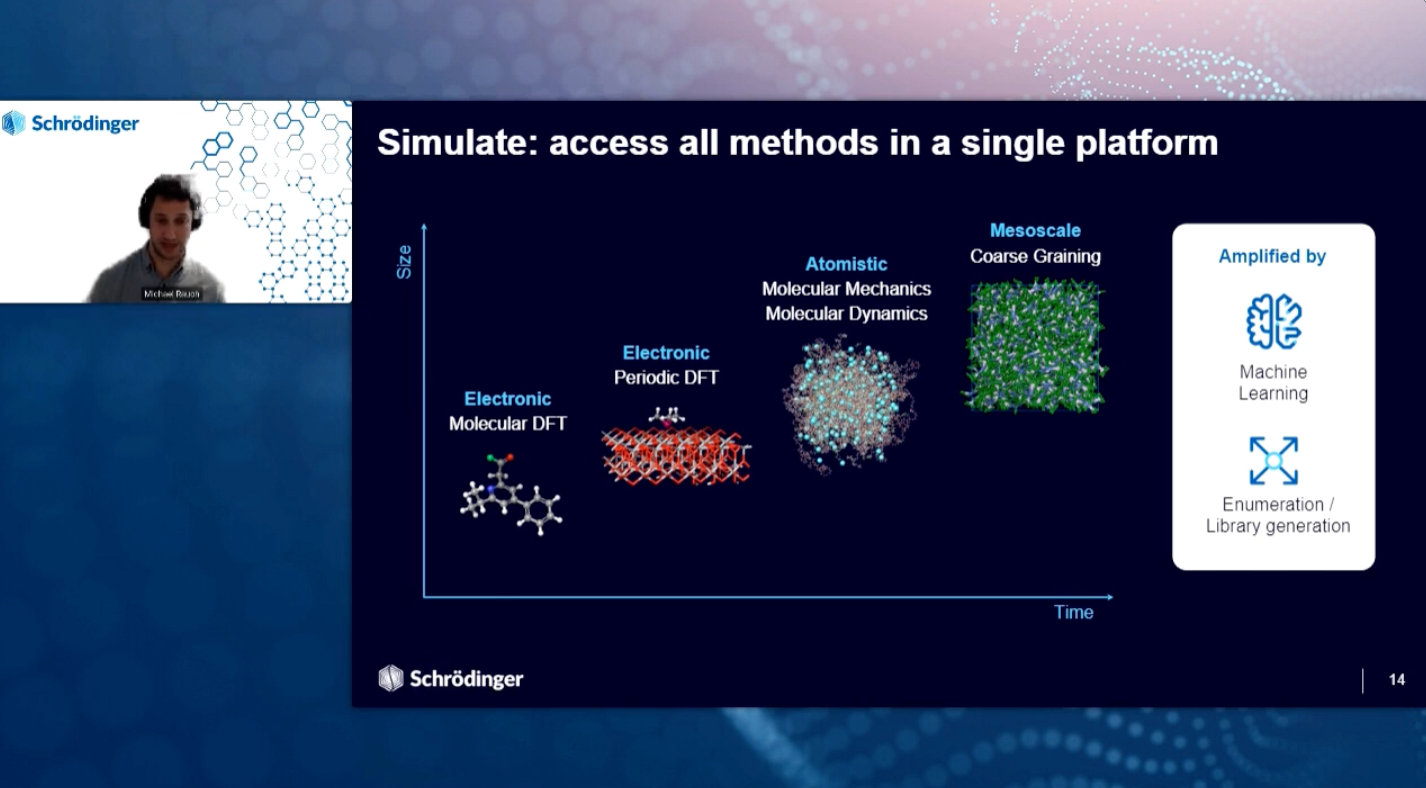
MAY 29, 2024
Taking experimentation digital: Materials innovation using atomistic simulation and machine learning at-scale
Our world is evolving rapidly and with it comes a wide range of challenges, including the need for sustainable and energy-efficient solutions, advanced electronic devices, and durable, lightweight materials for transportation, aerospace, and construction. Traditional methods for materials discovery or selection are no longer viable for keeping pace with demands.
In this talk, we will introduce a modern approach to materials R&D using a digital chemistry platform for in silico analysis, optimization, and discovery. The platform enables materials design at-scale across a wide range of applications, including organic electronics, catalysis, energy capture and storage, polymeric materials, consumer packaged goods, pharmaceutical formulation and delivery, and thin film processing.
By combining both physics-based modeling approaches (e.g. DFT, molecular dynamics, coarse-graining) and machine learning, researchers can easily incorporate in silico methods into their day-to-day workflows to expedite R&D timelines. Moreover, automated solutions enable scaling from simple molecular property predictions on a local device to high-throughput calculations on the cloud.
We will present real-world case studies that were performed by both experienced modelers as well as novice experimentalists who are new to digital chemistry approaches.
Key Learning Objectives:
- Learn to leverage data from physics-based simulations and machine learning to accelerate materials R&D
- Hear practical case studies and customer stories across materials industries including organic electronics, catalysis, energy capture and storage, polymeric materials, consumer packaged goods, pharmaceutical formulation and delivery, and thin film processing
- Identify key areas in your R&D where physics-based simulation and machine learning can provide value

Michael Rauch, Ph.D.
Associate Director
Michael Rauch is an Associate Director at Schrödinger specializing in materials science and education. Michael earned his Ph.D. from Columbia University in synthetic organometallic chemistry as an NSF Graduate Research Fellow before pursuing a postdoctoral role in organic chemistry at the Weizmann Institute of Science as a Zuckerman Postdoctoral Scholar. Michael is particularly interested in green, sustainable chemistry and transforming the way that synthetic chemists utilize molecular modeling via practical education.